The vast majority of cases in any trial court typically involve garden variety civil and criminal cases, car wrecks, contract disputes, drug deals and larcenies. Even larger cases such as class actions against major corporations or murders rarely rarely receive much attention from anybody but the local public and local media. However, occasionally a particularly heinous crime is charged, a novel issue is raised, or a celebrated party is involved in a civil, domestic, or criminal matter that captivates public attention in a compelling way.
When this happens, whether the public attention is merited or not, what might otherwise be a typical, mundane legal matter is transformed into a drama of extraordinary notoriety. Cameras are deployed to search for ten-second sound bites, online articles produce screaming headlines and social media sites generate trending hashtags, all of which is focused on a single case, courtroom and judge. This unsought attention and scrutiny are rarely welcome to a trial judge. The bright light of intense media scrutiny is particularly unsettling for trial judges who are accustomed to operating in quiet anonymity and who have thus far escaped the high-profile case.
The purpose of this website is to assist trial judges and court staff in planning for and managing high-profile cases. Despite the variety of circumstances that have pushed cases into the national spotlight, some techniques have proven useful and have become routine practice in high-profile cases.
The guidance offered on this website was provided by an Advisory Committee consisting of expert trial judges, court administrators, public information officers, court security experts, and others with extensive knowledge about high-profile case management. The 1998 edition of Managing Notorious Trials provided the basic framework of information to which the Advisory Committee added insights about new issues in high-profile case management.
Across the country courts use a variety of terms and titles to convey a specific role. To avoid confusion, the following terms have been used throughout this website with their expressed definition in mind. As applicable, please apply these terms to whatever roles and titles your court utilizes.
- High-Profile Case Team
The group of court professionals with expertise in court management, media relations, and court security the trial judge commences. This website describes the HPC team and their duties in detail.
- Trial Judge
The person who has been assigned to handle significant pretrial motions and try the case if necessary. This person should also have the responsibility of managing non=litigation aspects of the case and providing oversight of the high-profile case team.
- Court Management
The role responsible for the oversight and coordination of routine trial court functions, minimizing disruptions to routine court operations, supervising trial support roles, and serving as the liaison to/with external stakeholders and resources including state Administrative Office of the Courts and local government officials. Depending on the court this role could be filled by the clerk of court, court administrator, court manager, or chief executive officer.
- Media Relations
The role responsible for providing expertise to the trial judge, serving as the court's media representative, monitoring compliance with court orders related to media coverage, offering corrections to inaccurate media reports concerning trial procedures or operations, and monitoring cyberspace and social media for problems or issues potentially affecting the high-profile case. Depending on the court this could be a court public information officer (PIO) state PIO, or someone within the court who has the expertise and authority to successfully serve as the court's representative to the media (examples: chief judge, trial judge, chief administrator, etc.)
- Court Security
The role responsible for conducting the initial and ongoing threat assessment including threats delivered online or through social media, allocating adequate, cost-effective security resources to address identified threats, and coordinating with external security resources (local police, state police, private contractors.) Depending on the court this role could be filled by a bailiff or a member of local law enforcement. However, the person selected should be respected by the various law enforcement agencies in the area.
- Information Technology (IT)
The role responsible for assessing the security and adequacy of the court’s technology infrastructure including server capacity, maintaining the case management system, and media and public access to electronic documents. Depending on the court this role could be filled by an IT person who works for the trial court, a state level IT person or if IT is provided by the county, a county IT employee.
- Jury Management
The role responsible for summoning and qualifying prospective jurors for grand or petit jury including providing estimates of the appropriate pool/panel size, assessing the risk of fair cross-section challenges, managing the distribution and collection of case-specific voir dire questionnaires, screening the jury panel for hardship, managing details related to jurors’ security and well-being including conditions of sequestration and provisions for anonymous juries. Depending on the court this role could be filled by the jury manager, jury commissioner, or jury administrator.
- Chief Judge
The role responsible for assessing the court's capabilities and weaknesses to manage a high-profile case, assembling documentation on relevant statutes and rules, and identifying individuals with expertise to fulfill necessary high-profile case team roles. After a high-profile case is filed with the court, the chief judge is responsible for deciding who will preside over the case and turning over all necessary material to the trial judge. Depending on the court this role could be filled by the chief judge, president judge, administrative judge, or presiding judge.
